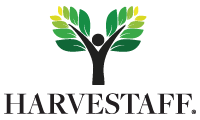How To Ask For An Update After A Job Interview
If you wish to say "Thank you for the interview," should you use the person's first name in a letter of appreciation because I usually do?
This is a good business etiquette question that is largely influenced by the applicant's standing and the interviewer's preference for how they are addressed, as well as the difference in age and status between the two parties. You can use the essential element of an interview address in a thank-you or follow-up email by going over it again.
Address interviewers as Mr. or Ms. assuming nothing to the contrary. Never bring up personal preferences during a job interview. Although it won't increase your chances of getting the job, choosing to address an interviewer by their first name without being told to will make you feel more equal for a brief period of time.
When conducting interviews, keep in mind the following advice:
Using an older person's first name in private conversations is appropriate; however, once there are more people present, you should use the more formal Mr. or Ms.
Just because other employees use a personal form of address does not mean that you have to follow suit.
If there is a considerable age difference, unless otherwise specified, use Mr. or Ms.
Use only your first name if necessary.
If you're unsure, ask.
Using a more formal address not only demonstrates your respect for a potential employer, but it also demonstrates that you are aware of and sensitive to the needs of the clientele of the company.
Follow-up thank-you letters
It may not always be necessary to follow the rules for thank-you and follow-up letters for interviews. With your proximity to the interviewer in terms of age, experience, and status, the likelihood that you will be encouraged to use first names during the interview rises; however, this does not always imply that you should do so in the follow-up letter. Returning to the formal and courteous address will help you score more points.
Use Mr. or Ms. instead of your last name when sending a thank you or follow-up email. Doing so shows that you are polite in professional settings. It will forever be seen as a testimonial to your moral character and professional demeanor, two traits that a shrewd applicant will wish to project.
